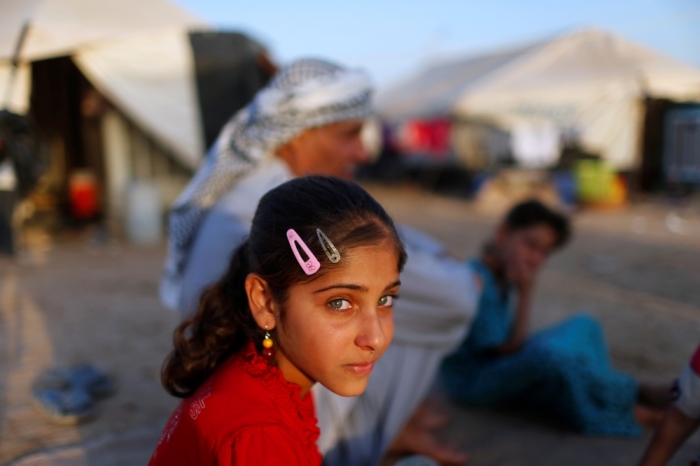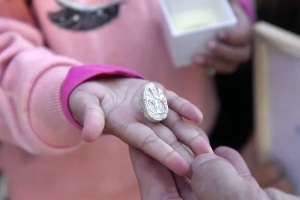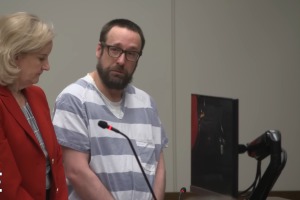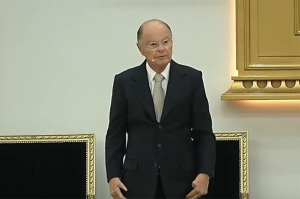ISIS Massacres 140 Civilians Trying to Flee Mosul

The Islamic State terror group has executed over 140 civilians who tried to escape jihadi-held territory in western Mosul, the Kurdish Regional Security Council has said.
In tweets posted last Friday, the KRSC said IS, also known as ISIS, ISIL or Deash, killed at least 140 civilians on April 3–4 because they tried to flee to areas of Mosul controlled by Iraqi forces.
"Some bodies were later hung on electrical poles in Eslah Zirai and Tanak neighbourhoods, others were taken to nearby frontlines," a second tweet reads.
2/ Some bodies were later hung on electrical poles in Eslah Zirai and Tanak neighbourhoods, others were taken to nearby frontlines.
— KR Security Council (@KRSCPress) April 7, 2017
The killings come as Iraqi-led coalition forces have spent the last six months trying to liberate Mosul and push the militants out of what was once Iraq's second largest city. In February, the coalition began the second phase of the offensive to liberate the western side of the city.
As IS continues to be pushed out of its territory in Iraq, the jihadis have been known to systematically kill those caught trying to flee from its territories.
The KRSC announced on Sunday that 12 other civilians had been executed by the jihadi death cult after trying to flee from IS' territory in the Kirkuk region. There have been numerous other reported instances in which IS militants have burned alive civilians trying to flee from Kirkuk.
The Iraqi Observatory for Human Rights reported in late March that IS had killed 122 civilians fleeing from Western Mosul.
In a press release shared with The Christian Post, the IOHR explained that local residents have said that IS executed 22 other families fleeing from Mosul on April 1.
"On Friday, 1 April 2017, ISIS executed 22 families from Al Makkawi area after 22 young men tried to escape the ISIS-controlled area with the help of a Syrian smuggler," the press release quotes a source as saying.
Additionally, the residents said that it was "a massacre where ISIS executed the family of Syrian smuggler, Labib Al-Dakkak, a food dealer in the old city of Mosul."
"Al Dakkak had agreed two months ago to smuggle 22 young men outside of the city," the source said. "The agreement then was at a standstill due to the beginning of the battles near the Old City, when ISIS members foiled the escape plan and executed all those who were allegedly involved along with their families on Friday evening."
Wathiq al-Hamdani, the police chief in the Nineveh province, confirmed the 22 deaths in an interview with IOHR and offered insight into how they were killed.
"On Sunday, April 2, Al Qayara hospital handed over 22 bodies, including women and children, who were evacuated by Iraqi forces," al-Hamdani said. "Most of them appeared to have sustained severe impact, as they were killed by ISIS booby traps and improvised explosive devices, gunfire or mortar shells as they were trying to escape from areas under ISIS control in Bab Al-Toub, Raas Al-Jadah and Bab Al-Baid areas in the center of Mosul."
In a statement, a representative with IOHR said "ISIS will continue to execute as many civilians as possible" and that nearly 400,000 people remain under IS control.
"The execution of civilians in Mosul constitutes war crimes and crimes against humanity," the statement reads.
In another press release shared with CP on Sunday, IOHR reports that dozens of civilian families who fled from IS-controlled territories to the Heet district in Iraq's Anbar province are at risk of being deported back to their hometowns.
"IOHR received a copy of a military order issued by the Al Jazira Operations Command, directed to the local councils in Heet, Haditha, and Al-Baghdadi and Barwana districts, to 'prevent the reception of displaced families from ISIS-controlled areas,'" the press release reads.
"The Chairperson of Heet Local Council, Mohammed Muhannad Jassim, said in an interview with IOHR: 'The decision was made to inform the families originating from the liberated areas from ISIS, to return to their areas, in agreement with the Chairperson of the Anbar Provincial Council Saadoun al-Alwani, with the decision excluding employees and those assigned public service.'"





























